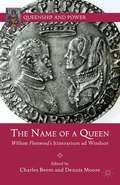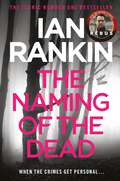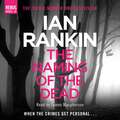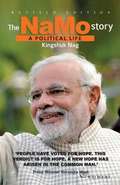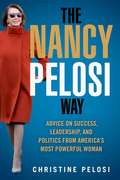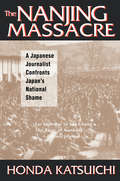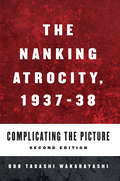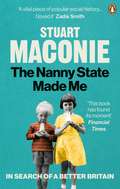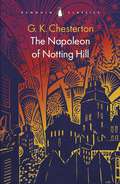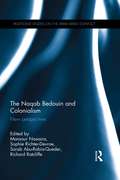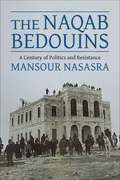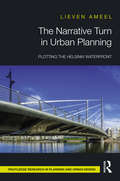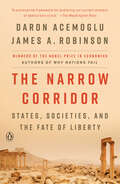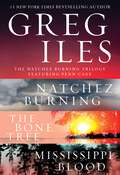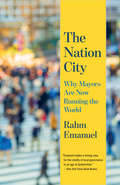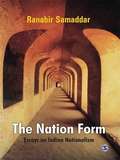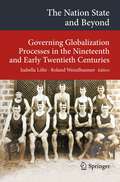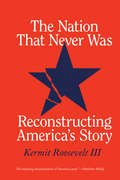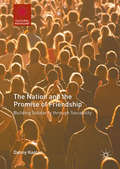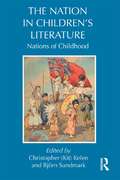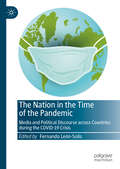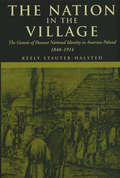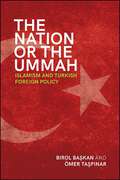- Table View
- List View
The Name of a Queen
by Dennis Moore Charles BeemItinerarium ad Windsor concerns a central question of the Elizabethan era: Why should a woman be allowed to rule with the same powers as a king? The man who poses this controversial question within Itinerarium is none other than Queen Elizabeth's powerful favorite Robert Dudley, Earl of Leicester. On hand to provide answers are the statesman and poet Thomas Sackville, Lord Buckhurst, and William Fleetwood antiquary, Recorder of London, and dutiful chronicler of their 1575 conversation. This critical edition of Itinerarium reproduces Fleetwood's text with annotations and a host of interpretive and contextualizing essays from leading scholars. Taken together, they constitute the definitive introduction to this remarkable discussion of regnant queenship, providing a valuable tool for understanding contemporary notions of and underlying fears concerning the efficacy and desirability of female rule in Elizabethan England.
The Naming Of The Dead
by Ian RankinThe sixteenth Inspector Rebus novel from 'Britain's best crime novelist' DAILY EXPRESS and No.1 bestselling author of A SONG FOR THE DARK TIMES'Rankin just gets better. The topicality and eye for detail are awesome' Jilly Cooper'This is possibly the best novel you will read in your life full stop. Yes, it is that good' NEWS OF THE WORLDA murder has been committed - but as the victim was a rapist, recently released from prison, no one is too concerned about the crime. That is, until Detective Inspector John Rebus and DS Siobhan Clarke uncover evidence that a serial killer is on the loose...When Rebus also starts looking into the apparent suicide of an MP, he is abruptly warned off the case, not least because the G8 leaders have gathered in Scotland, and Rebus's bosses want him well out of the way. But Rebus has never been one to stick to the rules, and when Siobhan has a very personal reason for hunting down a riot cop, it looks as though both Rebus and Clarke may be up against their own side...
The Naming Of The Dead (A Rebus Novel)
by Ian RankinThe sixteenth Inspector Rebus novel from 'Britain's best crime novelist' DAILY EXPRESS and No.1 bestselling author of A SONG FOR THE DARK TIMES'Rankin just gets better. The topicality and eye for detail are awesome' Jilly Cooper'This is possibly the best novel you will read in your life full stop. Yes, it is that good' NEWS OF THE WORLDA murder has been committed - but as the victim was a rapist, recently released from prison, no one is too concerned about the crime. That is, until Detective Inspector John Rebus and DS Siobhan Clarke uncover evidence that a serial killer is on the loose...When Rebus also starts looking into the apparent suicide of an MP, he is abruptly warned off the case, not least because the G8 leaders have gathered in Scotland, and Rebus's bosses want him well out of the way. But Rebus has never been one to stick to the rules, and when Siobhan has a very personal reason for hunting down a riot cop, it looks as though both Rebus and Clarke may be up against their own side...
The Naming Of The Dead: From the Iconic #1 Bestselling Writer of Channel 4’s MURDER ISLAND (A Rebus Novel)
by Ian RankinA murder has been committed - but as the victim was a rapist, recently released from prison, no one is too concerned about the crime. That is, until Detective Inspector John Rebus and DS Siobhan Clarke uncover evidence that a serial killer is on the loose...When Rebus also starts looking into the apparent suicide of an MP, he is abruptly warned off the case, not least because the G8 leaders have gathered in Scotland, and Rebus's bosses want him well out of the way. But Rebus has never been one to stick to the rules, and when Siobhan has a very personal reason for hunting down a riot cop, it looks as though both Rebus and Clarke may be up against their own side...Read by James Macpherson(p) 2006 Orion Publishing Group
The Namo Story: A Political Life
by Kingshuk NagOne of the truly enigmatic personalities on the contemporary Indian political canvas, Narendra Damodardas Modi is difficult to ignore. <P><P>From his humble beginnings as a RSS pracharak to his rise in the Hindutva ranks, and from being Bharatiya Janata Party's master planner to one of the its most popular and controversial state chief ministers, Modi's mantra of change and development is gradually finding many takers. Though he evokes vastly different reactions among the citizens for his alleged role during the Godhra aftermath, what is absolutely clear is that he indeed is racing towards the centre stage, making the 2014 General Elections look more like a Presidential system - where, you either vote for him or against him. And that, as they say, is the Modi effect. Kingshuk Nag paints the most vivid portrait of the extraordinary politician who is poised to take on a new role in the coming years.
The Nancy Pelosi Way: Advice on Success, Leadership, and Politics from America's Most Powerful Woman (Women in Power)
by Christine Pelosi&“Her story is unique, but I hope the lessons are universal.&”—Christine PelosiUnderstand and apply the wisdom of Madam Speaker Nancy Pelosi—through the eyes of someone who knows her best. In this personal and important book Christine Pelosi takes a close look at how her mother went from homemaker to Speaker of the House of Representatives and became the most powerful female politician in America. Her book addresses Speaker Pelosi&’s role in current events, and offers advice on politics, family, and friendship gleaned from her mother&’s life. From her childhood in Baltimore to her hands-on motherhood in San Francisco to her national leadership, this book demonstrates how a mother of five and grandmother of nine achieved her success. Chapters include: Know Your PowerProper Preparation Prevents Poor PerformanceKnow Your Authentic SelfClaim Your Seat at the TableBuild Strategic AlliancesDon&’t Agonize, OrganizeAnd more. In 2007, Nancy Pelosi became the highest-ranking elected female government official in US history when she started her tenure as Speaker of the House of Representatives. In January 2019, she began her third term as Speaker during a tumultuous time in American political history. Having represented San Francisco for thirty-two years, she has become well-known for her work to expand health care, lift up workers, protect the environment, promote human rights, and make progress for the American people regardless of the president in the White House or the party controlling Congress. This book serves as the perfect guide for anyone looking to enter public service or prosper as a leader in their own field.
The Nanjing Massacre: A Japanese Journalist Confronts Japan's National Shame (Studies Of The Pacific Basin Institute)
by Frank Gibney Katsuichi Honda Karen SandnessThis book is based on four visits to China between 1971 and 1989 by Honda Katsuichi, an investigative journalist for Asahi Shimbun. His aim is to show in pitiless detail the horrors of the Japanese Army's seizure and capture of Nanjing in December 1937. Unvarnished accounts of the testimony - Chinese victims and Japanese perpetrators - to the rape and slaughter are juxtaposed with public relations announcements of the Japanese Army as printed in various Japanese newspapers of the time. The bland announcements of triumphant victories stand in bitter contrast to the atrocities that actually took place on the scene. The story unfolds with horrible detail as we watch the triumphant progress of the Japanese army whose troops were bent on rape and killing in the so-called "heat of battle." Yet by recalling the testimony of Japanese soldiers and reporters who were on the scene, as well as reproducing dispatches by Japanese Army authorities at the time, Honda makes it clear that the atrocities were part of a studied effort directed by the Japanese high command to impress the Chinese people with the power of its army and the folly of resistance to it - the estimate of 300,000 killed in these "military operations" is no exaggeratoin. Honda has worked with other Japanese journalists and scholars who have attempted to reveal the truth of the Nanjing massacre, provoked by the efforts of right-wing Japanese, including, sadly, many government officials, to whitewash the whole incident, even to the point of contending that a "massacre" never happened. This gripping account of the atrocities and cover-up joins other exposes - Chinese and now German - in keeping alive the memory of this shameful event.
The Nanking Atrocity, 1937-1938: Complicating the Picture
by Bob Tadashi WakabayashiFirst published in 2007, The Nanking Atrocity remains an essential resource for understanding the massacre committed by Japanese soldiers in Nanking, China during the winter of 1937-38. Through a series of deeply considered and empirically rigorous essays, it provides a far more complex and nuanced perspective than that found in works like Iris Chang's bestselling The Rape of Nanking. It systematically reveals the flaws and exaggerations in Chang's book while deflating the self-exculpatory narratives that persist in Japan even today. This second edition includes an extensive new introduction by the editor reflecting on the historiographical developments of the last decade, in advance of the 80th anniversary of the massacre.
The Nanny State Made Me: A Story of Britain and How to Save it
by Stuart Maconie'He is as funny as Bryson and as wise as Orwell' ObserverIt was the spirit of our finest hour, the backbone of our post-war greatness, and it promoted some of the boldest and most brilliant schemes this isle has ever produced: it was the Welfare State, and it made you and I. But now it's under threat, and we need to save it.In this timely and provocative book, Stuart Maconie tells Britain’s Welfare State story through his own history of growing up as a northern working class boy. What was so bad about properly funded hospitals, decent working conditions and affordable houses? And what was so wrong about student grants, free eye tests and council houses? And where did it all go so wrong? Stuart looks toward Britain’s future, making an emotional case for believing in more than profit and loss; and championing a just, fairer society.
The Napoleon of Notting Hill
by G K ChestertonLondon, 1984. England has given up on democracy and selects its rulers by lottery. This time it is the turn of clerk Auberon Quin, a prankster who decrees that each borough of London become an independent mediaeval state, complete with costumes and coats of arms. The citizens bear his joke with varying levels of patience – until Adam Wayne, the intractable Provost of Notting Hill, sword in hand, takes the game far too seriously.First published in 1904, G. K. Chesterton's deliriously eccentric debut novel is a wild, topsy-turvy satire on a land ruled by fools.
The Napoleonic Wars (Smithsonian History of Warfare)
by Gunther E. RothenbergThis vividly illustrated history of the Napoleonic Wars documents the wars' origins in the French Revolution, narrates Napoleon's victories at Austerlitz and Jena, and concludes with his defeats in the Iberian Peninsula, Russia, and finally at Waterloo. Author Gunther E. Rothenberg describes how Napoleon transformed interstate warfare into a system of relentless conquest, creating a military superpower on a scale not seen since the Roman Empire. Though eventually defeated, Napoleon's model of conquest set a pattern that was to be revived by modern totalitarian states, and their opponents. - A sweeping examination of the rise, triumph, and eventual downfall of Napoleon, a man whose military genius forever changed the face of war. - Analysis of Napoleon's system of waging war, and the strategies that allowed him to create a singularly powerful army. - A look at the profound influence of Napoleonic conquest on warfare of the modern era.
The Naqab Bedouin and Colonialism: New Perspectives (Routledge Studies on the Arab-Israeli Conflict)
by Sophie Richter-Devroe Mansour Nasasra Sarab Abu-Rabia-Queder Richard RatcliffeThe Naqab Bedouin and Colonialism brings together new scholarship to challenge perceived paradigms, often dominated by orientalist, modernist or developmentalist assumptions on the Naqab Bedouin. The past decade has witnessed a change in both the wider knowledge production on, and political profile of, the Naqab Bedouin. This book addresses this change by firstly, endeavouring to overcome the historic isolation of Naqab Bedouin studies from the rest of Palestine studies by situating, studying and analyzing their predicaments firmly within the contemporary context of Israeli settler-colonial policies. Secondly, it strives to de-colonise research and advocacy on the Naqab Bedouin, by, for example, reclaiming ‘indigenous’ knowledge and terminology. Offering not only a nuanced description and analysis of Naqab Bedouin agency and activism, but also trying to draw broader conclusion as to the functioning of settler-colonial power structures as well as to the politics of research in such a context, this book is essential reading for students and researchers with an interest in Postcolonial Studies, Development Studies, Israel/Palestine Studies and the contemporary Middle East more broadly.
The Naqab Bedouins: A Century of Politics and Resistance (Routledge Studies On The Arab-israeli Conflict)
by Mansour NasasraConventional wisdom positions the Bedouins in southern Palestine and under Israeli military rule as victims or passive recipients. In The Naqab Bedouins, Mansour Nasasra rewrites this narrative, presenting them as active agents who, in defending their community and culture, have defied attempts at subjugation and control. The book challenges the notion of Bedouin docility under Israeli military rule and today, showing how they have contributed to shaping their own destiny. The Naqab Bedouins represents the first attempt to chronicle Bedouin history and politics across the last century, including the Ottoman era, the British Mandate, Israeli military rule, and the contemporary schema, and document its broader relevance to understanding state-minority relations in the region and beyond. Nasasra recounts the Naqab Bedouin history of political struggle and resistance to central authority. Nonviolent action and the strength of kin-based tribal organization helped the Bedouins assert land claims and call for the right of return to their historical villages. Through primary sources and oral history, including detailed interviews with local indigenous Bedouins and with Israeli and British officials, Nasasra shows how this Bedouin community survived strict state policies and military control and positioned itself as a political actor in the region.
The Narrative Turn in Urban Planning: Plotting the Helsinki Waterfront
by Lieven AmeelNarratives, in the context of urban planning, matter profoundly. Planning theory and practice have taken an increasing interest in the role and power of narrative, and yet there is no comprehensive study of how narrative, and concepts from narrative and literary theory more broadly, can enrich planning and policy. The Narrative Turn in Urban Planning addresses this gap by defining key concepts such as story, narrative, and plot against a planning backdrop, and by drawing up a functional typology of different planning narratives. In two extended case studies from the planning of the Helsinki waterfront, it applies the narrative concepts and theories to a broad range of texts and practices, considering ways toward a more conscious and contextualized future urban planning. Questioning what is meant when we speak of narratives in urban planning, and what typologies we can draw up, it presents a threefold taxonomy of narratives within a planning framework. This book will serve as an important reference text for upper-level students and researchers interested in urban planning.
The Narrow Corridor: States, Societies, and the Fate of Liberty
by Daron Acemoglu James A. RobinsonFrom the authors of the international bestseller Why Nations Fail, a crucial new big-picture framework that answers the question of how liberty flourishes in some states but falls to authoritarianism or anarchy in others--and explains how it can continue to thrive despite new threats. In Why Nations Fail, Daron Acemoglu and James A. Robinson argued that countries rise and fall based not on culture, geography, or chance, but on the power of their institutions. In their new book, they build a new theory about liberty and how to achieve it, drawing a wealth of evidence from both current affairs and disparate threads of world history. Liberty is hardly the "natural" order of things. In most places and at most times, the strong have dominated the weak and human freedom has been quashed by force or by customs and norms. Either states have been too weak to protect individuals from these threats, or states have been too strong for people to protect themselves from despotism. Liberty emerges only when a delicate and precarious balance is struck between state and society. There is a Western myth that political liberty is a durable construct, arrived at by a process of "enlightenment." This static view is a fantasy, the authors argue. In reality, the corridor to liberty is narrow and stays open only via a fundamental and incessant struggle between state and society: The authors look to the American Civil Rights Movement, Europe’s early and recent history, the Zapotec civilization circa 500 BCE, and Lagos’s efforts to uproot corruption and institute government accountability to illustrate what it takes to get and stay in the corridor. But they also examine Chinese imperial history, colonialism in the Pacific, India’s caste system, Saudi Arabia’s suffocating cage of norms, and the “Paper Leviathan” of many Latin American and African nations to show how countries can drift away from it, and explain the feedback loops that make liberty harder to achieve. Today we are in the midst of a time of wrenching destabilization. We need liberty more than ever, and yet the corridor to liberty is becoming narrower and more treacherous. The danger on the horizon is not "just" the loss of our political freedom, however grim that is in itself; it is also the disintegration of the prosperity and safety that critically depend on liberty. The opposite of the corridor of liberty is the road to ruin.
The Natchez Burning Trilogy: A Penn Cage Collection Featuring: Natchez Burning, The Bone Tree, and Mississippi Blood (Penn Cage)
by Greg Iles“A superb entertainment that is a work of power, distinction and high seriousness.” – Washington PostFrom #1 New York Times bestselling author Greg Iles come the widely acclaimed Natchez Burning trilogy, featuring Penn CageNatchez BurningRaised in Natchez, Mississippi, Penn Cage learned all he knows from his father, Dr. Tom Cage. But now Tom has been accused of murdering the Black nurse with whom he worked in the 1960s and Penn is determined to exonerate him. The quest for answers leads down a trail of corruption and brutality that places Penn’s family squarely in the crosshairs of the Double Eagles, a vicious offshoot of the KKK controlled by some of the state’s most powerful men. Penn ultimately must acknowledge that secrets from his father’s past have put the Cage family in great jeopardy. The Bone TreePenn Cage’s family is in crisis, has inadvertently started a war with an offshoot of the KKK called the Double Eagles, and his fiancée, journalist Caitlin Masters, is chasing the biggest—and most dangerous— story of her career. The only path out of this chaos is taking on the powerful men behind the Double Eagles, who are hiding a secret legacy darker than anything Penn can imagine. All roads lead to the Bone Tree, a legendary killing site that conceals far more than the remains of the forgotten—and where the shadow of personal tragedy threatens all Penn holds dearest. Mississippi BloodPenn Cage is shattered by grief and dreaming of vengeance. The woman he loves is gone, and his father Dr. Tom Cage is about to be tried for murder. When Tom stubbornly refuses to speak in his own defense, Penn joins forces with Serenity Butler, a famous young Black author who has come to Natchez to write about his father's case. Together, Penn and Serenity battle to discover the secret history of the Cage family and the South itself, a desperate move that risks the only thing they have left to gamble: their lives.
The Nation City: Why Mayors Are Now Running the World
by Rahm EmanuelAt a time of anxiety about the effectiveness of our national government, Rahm Emanuel provides a clear vision, for both progressives and centrists, of how to get things done in America today--a bracing, optimistic vision of America's future from one of our most experienced and original political minds.In The Nation City, Rahm Emanuel, former two-term mayor of Chicago and White House Chief of Staff for President Barack Obama, offers a firsthand account of how cities, rather than the federal government, stand at the center of innovation and effective governance. Drawing on his own experiences in Chicago, and on his relationships with other mayors around America, Emanuel provides dozens of examples to show how cities are improving education, infrastructure, job conditions, and environmental policy at a local level.Emanuel argues that cities are the most ancient political institutions, dating back thousands of years and have reemerged as the nation-states of our time. He makes clear how mayors are accountable to their voters to a greater degree than any other elected officials and illuminates how progressives and centrists alike can best accomplish their goals by focusing their energies on local politics. The Nation City maps out a new, energizing, and hopeful way forward.
The Nation Form
by Ranabir SamaddarMost writings on the theme of the nation confine themselves to discussions of ideology and thoughts on nationalism, leaving out the question of the form of the nation. This selection of writings by Ranabir Samaddar fills in that void and presents a whole range of dimensions, perspectives, and controversies of the last two decades on the question of the nation in India. It looks at the form of the Indian nation in terms of contests, contradictions, classes, and nationalist strategies of inclusion and exclusion, thereby addressing two significant issues in view of the nation form--its relation with democracy and the problem of governing the nation. This selection not only comprises essays that stand on their own merit, but also, in totality, presents a historical summary of the nation's experience through decades--before and after Independence.
The Nation State and Beyond
by Roland Wenzlhuemer Isabella LöhrThe history of globalization is anything but a no-frills affair that moves smoothly along a clear-cut, unidirectional path of development, eventually leading to seamless global integration. Accordingly, scholarship in the social sciences has increasingly argued against equating the history of globalization processes and transcultural entanglements with the master narrative of the gradual homogenization of the world. Examining the shifting patterns of global connections has, therefore, become the main challenge for all those who seek to understand the past, the present and the future of modern societies. And this challenge includes finding a place for the nation state. The studies presented here argue that looking at the nation state from the perspective of global entanglements opens the door for its interpretation as a dynamic and multi-layered structure that takes part in globalization processes and plays various and at times even contradictory roles at the same time.
The Nation That Never Was: Reconstructing America's Story
by Kermit Roosevelt III&“Persuasively argues that we must liberate ourselves from our sentimentalized attachment to the &‘Founders&’ and even the Declaration of Independence&” --Sanford Levinson, author of Our Undemocratic Constitution There&’s a common story we tell about America: that our fundamental values as a country were stated in the Declaration of Independence, fought for in the Revolution, and made law in the Constitution. But, with the country increasingly divided, this story isn&’t working for us anymore—what&’s more, it&’s not even true. As Kermit Roosevelt argues in this eye-opening reinterpretation of the American story, our fundamental values, particularly equality, are not part of the vision of the Founders. Instead, they were stated in Lincoln&’s Gettysburg Address and were the hope of Reconstruction, when it was possible to envision the emergence of the nation committed to liberty and equality. We face a dilemma these days. We want to be honest about our history and the racism and oppression that Americans have both inflicted and endured. But we want to be proud of our country, too. In The Nation That Never Was, Roosevelt shows how we can do both those things by realizing we&’re not the country we thought we were. Reconstruction, Roosevelt argues, was not a fulfillment of the ideals of the Founding but rather a repudiation: we modern Americans are not the heirs of the Founders but of the people who overthrew and destroyed that political order. This alternate understanding of American identity opens the door to a new understanding of ourselves and our story, and ultimately to a better America. &“An inspiring reexamination of America's past.&” —Publishers Weekly &“Compelling and well worth consideration.&” —Kirkus Reviews, starred review
The Nation and the Promise of Friendship: Building Solidarity Through Sociability (Cultural Sociology Ser.)
by Danny KaplanWhen strangers meet in social clubs, watch reality television, or interact on Facebook, they contribute to the social glue of mass society—not because they promote civic engagement or democracy, but because they enact the sacred promise of friendship. Where most theories of nationalism focus on issues of collective identity formation, Kaplan’s novel framework turns attention to compatriots’ experience of solidarity and how it builds on interpersonal ties and performances of public intimacy. Combining critical analyses of contemporary theories of nationalism, civil society, and politics of friendship with in-depth empirical case studies of social club sociability, Kaplan ultimately shows that strangers-turned-friends acquire symbolic, male-centered meaning and generate feelings of national solidarity.
The Nation in Children's Literature: Nations of Childhood (Children's Literature and Culture)
by Christopher Kit Kelen Björn SundmarkThis book explores the meaning of nation or nationalism in children’s literature and how it constructs and represents different national experiences. The contributors discuss diverse aspects of children’s literature and film from interdisciplinary and multicultural approaches, ranging from the short story and novel to science fiction and fantasy from a range of locations including Canada, Australia, Taiwan, Norway, America, Italy, Great Britain, Iceland, Africa, Japan, South Korea, India, Sweden and Greece. The emergence of modern nation-states can be seen as coinciding with the historical rise of children’s literature, while stateless or diasporic nations have frequently formulated their national consciousness and experience through children’s literature, both instructing children as future citizens and highlighting how ideas of childhood inform the discourses of nation and citizenship. Because nation and childhood are so intimately connected, it is crucial for critics and scholars to shed light on how children’s literatures have constructed and represented historically different national experiences. At the same time, given the massive political and demographic changes in the world since the nineteenth century and the formation of nation states, it is also crucial to evaluate how the national has been challenged by changing national languages through globalization, international commerce, and the rise of English. This book discusses how the idea of childhood pervades the rhetoric of nation and citizenship, and how children and childhood are represented across the globe through literature and film.
The Nation in the Time of the Pandemic: Media and Political Discourse across Countries during the COVID-19 Crisis
by Fernando León-SolísThis edited volume explores the media and political discourses during the COVID-19 crisis across thirteen nations. Despite warnings that a global pandemic was a matter of if rather than when, the virus caught governments worldwide unaware. The nature, extent and timespan of governmental responses varied significantly from country to country, but a number of features were common to all. The nation became the frame of reference used in an attempt to make sense of the crisis, to keep citizens united, to gain their trust, and to ensure compliance with unprecedented health mandates. With the same purpose, there was a recourse to ‘non-ideological’ values and narratives (sometimes abstract, sometimes political) that could be accepted by all stakeholders. The analyses evidence the perception of the fragility of liberal democracy, caused by too much political and media consensus, by too much political and media dissent and by the threat of populism. The wide-ranging scope and multi-perspective methodology of the analyses offered in this book are an essential reading for academics and students of Media Studies, Politics, Political Communication, and Discourse Analysis and their associated disciplines. Written in accessible language, this volume (full of insightful and at times surprising ideas) will be of interest for all those keen to understand the role of political and media discourse in the communication of the COVID-19 crisis and its wider implications for liberal democracies.
The Nation in the Village: The Genesis of Peasant National Identity in Austrian Poland, 1848–1914
by Keely Stauter-HalstedHow do peasants come to think of themselves as members of a nation? The widely accepted argument is that national sentiment originates among intellectuals or urban middle classes, then "trickles down" to the working class and peasants. Keely Stauter-Halsted argues that such models overlook the independent contribution of peasant societies. She explores the complex case of the Polish peasants of Austrian Galicia, from the 1848 emancipation of the serfs to the eve of the First World War. In the years immediately after emancipation, Polish-speaking peasants were more apt to identify with the Austrian Emperor and the Catholic Church than with their Polish lords or the middle classes of the Galician capital, Cracow. Yet by the end of the century, Polish-speaking peasants would cheer, "Long live Poland" and celebrate the centennial of the peasant-fueled insurrection in defense of Polish independence. The explanation for this shift, Stauter-Halsted says, is the symbiosis that developed between peasant elites and upper-class reformers. She reconstructs this difficult, halting process, paying particular attention to public life and conflicts within the rural communities themselves. The author's approach is at once comparative and interdisciplinary, drawing from literature on national identity formation in Latin America, China, and Western Europe. The Nation in the Village combines anthropology, sociology, and literary criticism with economic, social, cultural, and political history.
The Nation or the Ummah: Islamism and Turkish Foreign Policy
by Birol Başkan Ömer TaşpınarTurkey's enthusiastic embrace of the Arab Spring set in motion a dynamic that fundamentally altered its relations with the United States, Russia, Qatar, Egypt, Saudi Arabia, the United Arab Emirates, and Iran, and transformed Turkey from a soft power to a hard power in the tangled geopolitics of the Middle East. Birol Başkan and Ömer Taşpınar argue that the ruling Justice and Development Party's (AKP) Islamist background played a significant role in the country's decision to embrace the uprisings and the subsequent foreign policy direction the country has pursued. They demonstrate that religious ideology is endogenous to—shaping and in turn being shaped by—Turkey's various engagements in the Middle East. The Nation or the Ummah emphasizes that while Islamist religious ideology does not provide specific policy prescriptions, it does shape the way the ruling elite sees and interprets the context and the structural boundaries they operate within.
